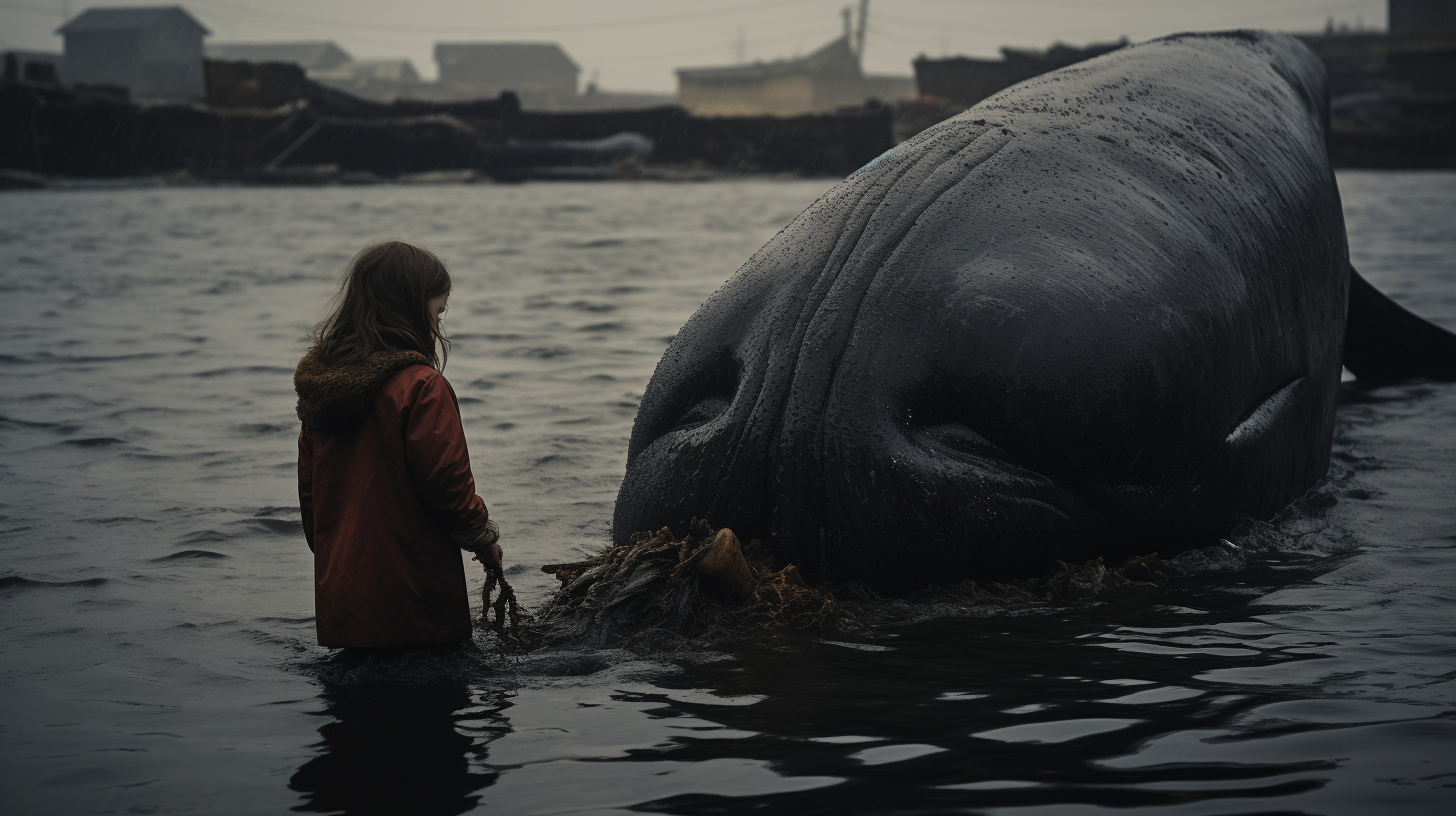It was a day unlike any other when the ocean’s once-melodious soundscape fell into a profound and permanent silence. Across the vast and turbulent waters, a symphony that had persisted for millennia ceased, heralding a grim finale. This was the day when the last whale sang.
The marine leviathans, whose haunting calls once reverberated through deep waters, were silenced by a myriad of human-induced catastrophes. We bear witness to the tragic aftermath of an ecosystem left barren, a testament to a world in which the giants of the sea are but a fading memory. Like a desolate wind sweeping through barren fields, the tale of these magnificent creatures tells us that our immediate attention is demanded, even if it’s a mere whisper against the roar of an approaching storm.
The ceaseless march of climate change fueled by human neglect has altered the very chemistry of the waters these creatures called home. Acidification and warming seas have wrought havoc on the krill populations—the primary sustenance for many whale species. Industrial pollutants have infiltrated marine sanctuaries, rendering them inhospitable even as conservation efforts seemed to peak in futility.
Now, the last call of the whales is nothing but an echo in the mind’s ear. Visions of these gentle behemoths breaching in a turquoise sea clash with the stark reality: oil spills congealing on the surface, plastic pollution entangling the last of the aquatic fauna, and the relentless din of shipping lanes disrupting whale communication and migration.
As marine biologists and ecologists raise the alarm, their data paints a picture of desolation. Species like the majestic blue whale, which once graced the Antarctic Peninsula, and the humpback, a familiar sight off Pacific coasts, now reside only in the annals of history and the flattened pages of dusty textbooks. Their song—a complex arrangement of groans, moans, and pulses—once a natural wonder, has been replaced by the silence of extinction.
Such a quietus may appear a form of acquiescence by these marine titans to their fate. Yet it represents a forceful indictment of our failures—a mirror to society’s own sputtering heartbeat. The narrative of this silent extinction challenges readers: it’s a clarion call for recognition that our world has unturned a vital stone in the circle of life, leading to irreversible consequences.
The story may unfold on an alien shore, unrecognizable as our own, yet its underlying message is clear and current. Each article of a broken food chain, each decibel increase in noise pollution, and each degree of warmth in the ocean’s gentle current signifies a step deeper into an abyss of our own making. In this dystopian portrayal, whales no longer grace our water worlds, leaving behind only the ghostly corridors of empty ocean stretches where their voices should have been.
To face such a future is to understand the gravity of our present. The loss of the whales is not an isolated tale of misfortune but a harbinger of broader collapse within our oceanic realms. It embodies a fracture in the planetary life system, the silence an aching void that was once filled with the song of giants.
The science is unequivocal—human action has preempted nature’s script. But this is no fictional account. The dystopian world depicted here, while steeped in grim narrative, serves as an urgent missive from a reality teetering on the edge. And though the songs of the whales may now be lost, the message they leave behind permeates through the depths—a dire warning, a lesson unheeded, a chance for change rapidly escaping.
As this chapter closes, with the last whale’s song still resounding in the dismal deep, we must ask ourselves what legacy we leave for the morrow. What world do we envision when the last vestiges of nature’s majesty are but echoes in empty seas? The absence of these enormous sentinels might serve as the final verse in a long and tragic requiem for the world as we hoped it could be—yet still ignored its plight.
The message is clear, as clear as the now silent depths: the time for action was yesterday, today, and must continue tomorrow. For while our dystopian narrative has borne the final note of the last whale’s song, we must decide if it will also toll for us.
